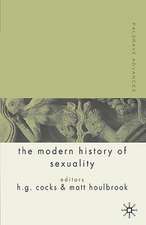Ancestral Landscapes in Human Evolution: Culture, Childrearing and Social Wellbeing
Editat de Darcia Narvaez, Kristin Valentino, Agustin Fuentes, James J. McKenna, Peter Grayen Limba Engleză Hardback – 17 apr 2014
Preț: 628.98 lei
Preț vechi: 865.80 lei
-27% Nou
Puncte Express: 943
Preț estimativ în valută:
120.36€ • 125.92$ • 99.98£
120.36€ • 125.92$ • 99.98£
Carte tipărită la comandă
Livrare economică 24-29 martie
Preluare comenzi: 021 569.72.76
Specificații
ISBN-13: 9780199964253
ISBN-10: 0199964254
Pagini: 384
Dimensiuni: 236 x 152 x 33 mm
Greutate: 0.64 kg
Editura: Oxford University Press
Colecția OUP USA
Locul publicării:New York, United States
ISBN-10: 0199964254
Pagini: 384
Dimensiuni: 236 x 152 x 33 mm
Greutate: 0.64 kg
Editura: Oxford University Press
Colecția OUP USA
Locul publicării:New York, United States
Recenzii
Ancestral Landscapes in Human Evolution is a well-written, captivating book that makes the case that infant care is an immensely complex yet intrinsically natural endeavor for many species, with humans providing exquisite cases for study because of our species' astounding cultural diversity. This book is an open invitation for readers to reflect on our inherent mammalian condition and our historicity as a species...
Notă biografică
Darcia Narvaez is Professor of Psychology at the University of Notre Dame. Dr. Narvaez's research focuses on moral development through the lifespan.Kristin Valentino is Assistant Professor of Psychology and the William J. Shaw Center for Children and Families Collegiate Chair at the University of Notre Dame. Dr. Valentino's research interests are in developmental psychopathology.Agustin Fuentes is Professor of Anthropology at the University of Notre Dame. Dr. Fuentes' current foci include cooperation and bonding in human evolution, ethnoprimatology and multispecies anthropology.James McKenna is Rev. Edmund P. Joyce, C.S.C., Professor of Anthropology at the University of Notre Dame. Dr. McKenna pioneered the first behavioral and electro-physiological studies documenting differences between mothers and infants sleeping together.Peter Gray is Research Professor of Psychology at Boston College. Dr. Gray has conducted and published research in neuroendocrinology, animal behavior, developmental psychology, anthropology, and education.








